Celebrating Black excellence this Black History Month
October is Black History Month, a time to celebrate and educate about black history and culture.
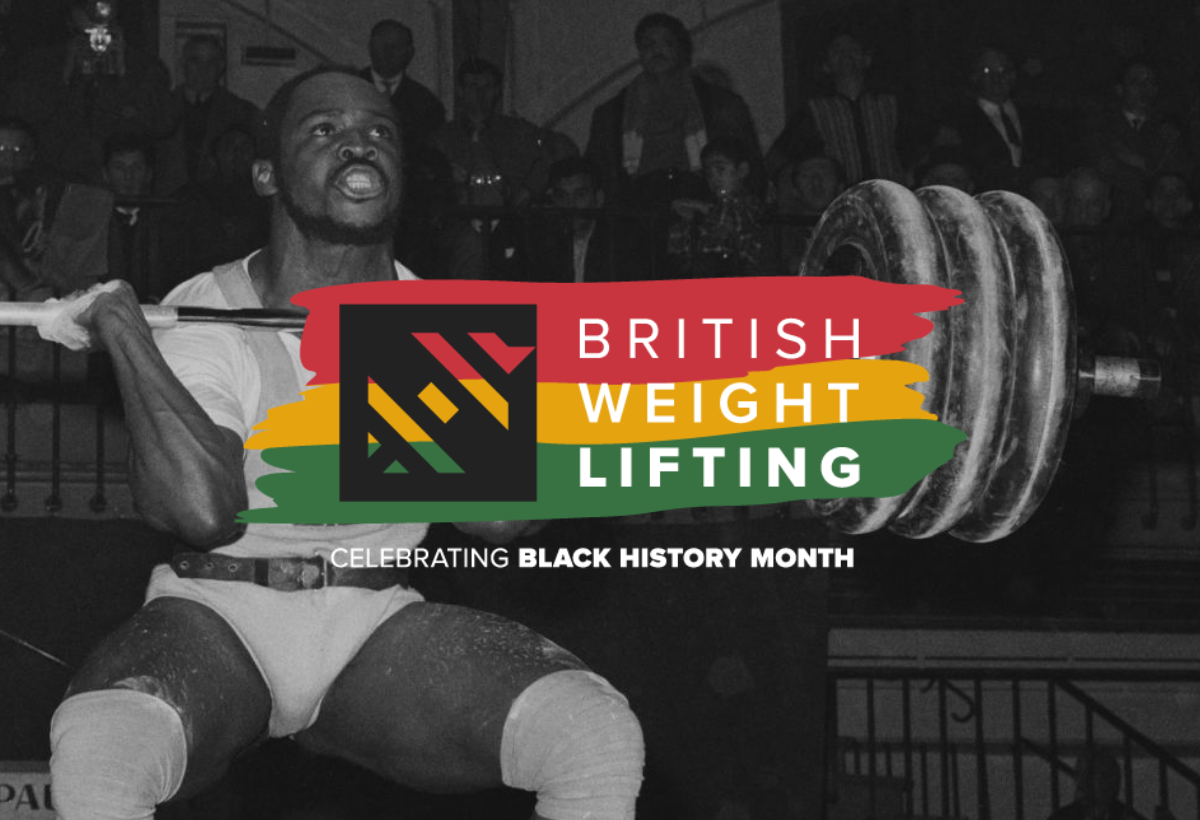
Black History Month started with Carter G. Woodson, the son of former slaves, who was born in Virginia, USA in 1875. Although opportunities were limited, Carter attended a school for Black children after he saved money working as a coal miner and went on to gain a PhD in History from Harvard University.
In 1926, Carter sent out a press release marking the first ever ‘Black History Week’. For the rest of his life, Carter worked to promote the teaching of black history in schools. In 1970, the event was expanded throughout America, with every President since 1976 recognising Black History Month as a significant event.[1]
Black History Month in the UK began in 1980 in London. The aim of the event was to challenge racism and educate the local community with important black history that was not being taught in schools.[2]
Black people have shaped and moulded the UK into what it is today and are incredibly important contributors to our history. Despite this, there has been a lack of representation in the history books and most schools have a history curriculum that focusses on the achievements of white figures.[3]
This month, we will be shining a spotlight onto the incredible black history makers in weightlifting and para powerlifting. From the 1950’s where we had the highly decorated Louis Martin bring home two Olympic medals, all the way to 2024, where we have the outstanding Emily Campbell bringing home Olympic bronze!
The magnificent Louis Martin is often regarded as the greatest British weightlifter of all-time with a record that includes four World Titles, Four European Championships, three and two Olympic medals.
He was born in Kingston, Jamaica, in 1935 and moved to the UK in the mid-1950s as part of the Windrush generation.
Martin represented Jamaica at Commonwealth level in 1958 but failed to total. The following year he switched allegiances to Great Britain and won his first World Title by defeating Soviet Olympic gold medallist Arkady Vorobyov.
Between 1960 and 1965 Martin racked up another three World Championships (‘62,’63, & ‘65) and finished runner-up twice (’61 & ‘64). On the continental scene, it was a similar story as in that same period Martin entered five European events and emerged victorious in four. During those dominant displays he represented Great Britain at Rome in 1960 where he brought home bronze and four years later, he went one better and took silver in Tokyo. In 1970, he took a third gold medal for Team England in the Edinburgh Commonwealth Games to go alongside his triumphs at Perth ‘62 and Kingston ‘66, where he also represented England in the opening ceremony as flag bearer.
You can read more about Louis on the Team GB website here and watch him lifting here.
Listen to more in-depth details about Louis Martin’s career, life in Jamaica, and his legacy in our podcast episode, here.
Bob Nialls was a super-heavy weight British Champion in the 1950’s.
Do you have any more information on Bob? Get in touch with us at enquiries@britishweightlfiting.org
Blair Blenman was born in Bridgetown, Barbados in 1932.
Blair’s international career kicked off when he represented Barbados in the middleweight weightlifting division at the 1958 Empire and Commonwealth Games in Cardiff, where he secured a gold medal with a 795lb result.
Blair was selected for the Olympics after winning the British Championships in Leeds, setting a new British record in the process.
In 1960 he competed in weightlifting at the Olympics in Rome, representing Great Britain.
Carlton Goring is a weightlifter who competed for England.
A post office sorter by trade, he lived in Tooting, London.
He represented Guyana in the 1958 British Empire and Commonwealth Games in Cardiff, Wales, where he placed fifth after a 725lb result.
Four years later he represented England and won the gold medal in the -67.5kg combined category at the 1962 British Empire and Commonwealth Games in Perth, Western Australia with a 755lb result.
Sylvanus Blackman was a male weightlifter who competed for Barbados, England and Great Britain.
Blackman was born on 1 July 1933 in Bridgetown, Barbados. He represented his country of birth at the 1958 British Empire and Commonwealth Games in Cardiff, Wales and won a silver medal in the 82.5kg category.
Eight years later he represented England and won another silver medal in the 82.5kg category, at the 1966 British Empire and Commonwealth Games in Kingston, Jamaica.
Blackman also competed at three Olympic Games representing Great Britain at Rome 1960, Tokyo 1964 and Mexico City 1968. He recorded a best result of tenth at Tokyo which was also recognised as that year’s World Championship event.
Watch Sylvanus in his element, competing at the 1964 Olympic trials at the Crystal Palace Sports Centre alongside World Champion Louis Martin, Commonwealth Gold Medallist Chung Kum Weng and Multiple Commonwealth Silver Medallist George Manners here.
Harold Norville was a British Champion weightlifter in the 1959 in the men’s 60kg category.
Following his UK successes, Harold moved to Canada to continue his weightlifting career. Harold competed at the 1967 Pan-Am Games and would become Ontario Champion in the 56kg category.
George Newton won Commonwealth gold for England in 1962, 1970 and 1974 and silver in 1966.
He was born in the then British colony of British Guiana (now independent as Guyana) but after qualifying as an electrician he moved to the UK as part of the windrush generation. After arriving he London he joined the Bethnal Green Weightlifting Club and soon set out on an international career that lasted for two decades.
The 1974 Commonwealth Games in Christchurch in New Zealand proved a major turning point in his life as he met and fell in love with the woman he was to marry after leaving London for New Zealand on New Year’s Day 1975.
By then a veteran of 42 he made a final Commonwealth Games in the singlet for his new country of residence at the 1978 Games in Edmonton, Canada although this time he came home without a medal after failing to record a valid lift. He retired from competitive lifting shortly afterwards but stayed connected to the sport by coaching.
Ralph Rowe was Great Britain's first black Paralympian. He competed in six Paralympic Games, in three different continents, across 20 years and medalled in five of them.
Rowe represented Pinderfields Spinal Unit at national level in Paralympic weightlifting, prior to it being replaced by powerlifting following the Barcelona Games in 1992. His Paralympic Games debut came back in Tokyo in 1964 where Rowe came away with a bronze medal, but he would improve upon that by picking up silver at the Tel Aviv Games in 1968.
It was, however, at the Heidelberg Games in 1972 where Rowe really made his mark, reaching the pinnacle of his sport by claiming the gold medal in the heavyweight category. Rowe added another silver to his medal collection when he travelled to Canada four years later for the Toronto Paralympics in 1976.
His extraordinary success was recognised in 1978 by the Sports Journalists' Association. Rowe was the recipient of the illustrious Bill McGowran Trophy, awarded to a high-achieving athlete with an impairment, an accolade since won by Tanni Grey-Thompson and David Weir.
Rowe did not medal at the Arnhem Games in 1980. But he picked up the third silver of his career in 1984, when Stoke Mandeville - widely regarded as the birthplace of competitive para-sport - hosted the Paralympic events for wheelchair athletes with spinal cord injuries.
George was born in St Vincent and the Grenadines in 1938. He migrated to England in 1957 and was a plumber by trade alongside his weightlifting training.
In 1964 he competed at the British Championships hosted at the Crystal Palace National Sports Centre in a competition which also doubled as the Tokyo Olympic trials.
George won his category lifting 360 pounds (163kg) for a total of 930 pounds (421kg) across the Snatch, Clean & Jerk and Clean & Press to establish new British & Empire records and earn a place on the plane to Tokyo.
Representing Great Britain at the Olympic Games, George finished in 15th place in the light-heavyweight category lifting 410kg. George then went on to win two silver medals at the 1962 British Empire and Commonwealth Games and the 1966 British Empire and Commonwealth Games respectively before winning Bronze in Edinburgh in 1970.
At the latter two events George stood on the podium alongside England Teammate and four-times World Champion Louis Martin, often regarded as the great British weightlifter of all time, demonstrating the high calibre of skill on display in what could be described as a golden era for the sport.
In modern times George had been one of the most recognisable and approachable faces at British Weight Lifting events often being seen coaching athletes in the warmup room or refereeing out front.
He has helped train many successful weightlifters over the years, among the most recent are Jamaican Weightlifter Omarie Mears, England International Halil Zorba and Great Britain International Mercy Brown who medalled at the European Championships.
Gerald Perrin is a retired weightlifter who competed for England and Great Britain.
He represented England and won a gold medal in the 60kg combined, at the 1970 British Commonwealth Games in Edinburgh, Scotland along side Louis Martin and Precious McKenzie who also secured gold at the same games.
Perrin became an Olympian in 1968 when he represented Great Britain in the Mexico City Summer Olympics.
Precious ‘The Pocket Rocket’ McKenzie won titles and represented Great Britain at three Olympic Games.
Born in Durban South Africa in 1936, McKenzie left the country after they refused to pick him for the Empire Games and Olympics because of the country's apartheid policy.
He was once famously photographed holding Muhammed Ali on his shoulders, and legend has it that Her Majesty, The Queen and Duke of Edinburgh were late for an official engagement at the 1974 Commonwealth Games in Christchurch because she wanted to watch Precious McKenzie win his third consecutive gold medal in weightlifting. 1974 was also the year that Precious was selected to be flag bearer for England in the Commonealth Games opening ceremony.
He won a gold medal at the European Communities Championship the following year which helped Great Britain secure third in the medal table. As a result of contacts made at Christchurch New Zealand, he decided to emigrate to the country, where he was offered the opportunity to be a weight trainer in a gym.
He settled in Auckland and won his fourth Commonwealth gold representing New Zealand at the age of 42 at the 1978 Commonwealth Games in Edmonton. In 2006 he was recognised by his birth country with an induction into the South African Sports Hall of Fame.
Newton Burrowes was born in Jamaica in 1955 and represented the United Kingdom and England at multiple international events.
Newton competed in the 1978 Commonwealth Games in Canada, gaining a silver medal in the men’s 75kg middleweight category.
Four years later he turned the silver medal into a gold at the 1982 Commonwealth Games in Queensland in the 82.5kg light-heavyweight category.
Newton also competed in two Summer Olympics in 1980 and 1984. You can watch some of Newton’s clean and jerk attempts in the 1984 Olympics here.
Heather began weightlifting in 1986 when she was working as a sports teacher and wanted to incorporate resistance training into her teaching. She enrolled on a weightlifting course and entered her first competition, where she placed second.
Heather went on to become a member of Britain’s first official weightlifting squad. Heather went on to achieve numerous titles, winning numerous British and European Championships, and placing tenth in the 1989 World Championships in the women’s 56kg category.
As a masters lifter, Heather won four World Championships, setting World records in the process.
An injury saw Heather retire from the sport in 2004, but she went onto officiating, eventually becoming an IWF official.
In 2012, Heather was selected as the Assistant Competition Secretary for the Weightlifting in the London Olympics.
Heather is also a Doctor of Education (EdD), and was elected in 2022 as Vice President of the Commonwealth Weightlifting Federation (CWF) and as a Member of the IWF Technical Committee.
In 1960, Sandra Smith-Vokroj’s parents emigrated to England from Jamaica, and two years later Sandra was born. Sandra was interested in sports from a young age and at the age of 15 she started playing basketball, making the England trials a year later.
Over the next few years, Sandra tried her hand at a range of sports, she played netball aged 18 against Australia, and once she was in college, she committed herself to shot put.
At the age of 23 Sandra sustained a serious lower back injury and she was advised to stop athletics or risk permanent damage. This news turned her onto weightlifting.
Sandra won her first national championships in 1986 in the women’s 75kg category. This performance qualified her for the first official Women’s Weightlifting Championships in 1987.
Between the years of 1987 and 1994 Sandra represented GB at four Senior World Championships and seven Senior European Championships. Sandra also won the 1990 European Union Championships.
Sandra also competed internationally in the sport of powerlifting, setting a new British deadlift record of 220kg.
In 1998, Sandra kicked off her masters career at the World Masters Games in Oregon. In 2002 while working as a prison officer, Sandra was in the process of overcoming serious injuries she sustained at work. This didn’t stop her becoming the new World Masters Champion at the World Masters Championships in Sweden.
Sandra is also an IWF Technical Official and worked at the London 2012 Olympics.
Jeanette Rose was a European Champion who would accumulate 10 continental medals in her career when counting medals won in the snatch and clean & jerk.
Rose won World Championship bronze representing in 1988 with a total of 188kg. In 1990 Rose clinched silver in the 67.5kg class at the European Championships lifting a total of 177.5kg She won the competition outright the following year increasing her total to 192.5kg She picked up another silver the following year. Rose also won two European Communities Championships.
Pauline Haughton was among the early pioneers for women’s weightlifting.
She was a European Champion and a World Medallist. In 1988 Haughton won the European 52kg title in a tiebreak after a tightly contested affair with Spain’s Sandra Gomez and Edina Jung of Hungary. All three athletes lifted 135kg in total, but Haughton came out on top when bodyweight was taken into account.
Two years later she won a silver medal in the same event. Haughton won bronze across the board at the World Championships later that year in the 52kg category. She snatched 67.5kg and clean & jerked 82.5kg to produce a total of 150kg.
Di Greenidge was part of the pioneering generation of female trailblazers that led the way for greater recognition of women's weightlifting when acceptance into the Commonwealth Games and the Olympics remained distant and aspirational.
A former athlete, she began weightlifting at an age when many would be contemplating retirement from international sport, and her accomplishments were forged alongside her successful corporate career.
Competing in the 60kg and 59kg categories, Di won several British championships and more than eight international medals.
Inclusion in such a ground-breaking British women's squad spurred her on to achieve podium finishes in two of her four appearances at the EEC/EU Championships from 1992 to 1995. Similarly, in her four appearances at the European championships, she achieved bronze both in 1993 and 1994. She also participated in two world championships.
Myrtle Augee is a two-time European Senior Weightlifting Champion, who won eight continental championship medals across the disciplines. She clinched four consecutive European Cup titles and took third overall at the World Championships in 1994.
Augee was also the last British weightlifter to win a World Championship medal until Emily Muskett secured clean and jerk bronze at Pattaya 2019.
Prior to weightlifting, Myrtle had international success in athletics. Over the course of her shot put career, Augee made five appearances for England between 1986 - 2002 and won four medals including gold at the Commonwealth Games in . .
Augee’s maiden European Weightlifting title success came in the 1993 European Championships which was held in Valencia Spain. She snatched 85kg to tie with second and third place at the interval then clean & jerked 115kg for a total of 200kg to come through and take the overall win.
That same year she won her first European Communities Championship, kickstarting a run of four titles in a row. In 1994 she added 12kg to her European Seniors total in Rome, Italy, but had to settle for silver overall behind Ukraine’s Lubov Grigurko.
She bounced back a year later at Beersheba, Israel to reclaim the continental crown adding a further 2.5kg to her total. Augee also had success in powerlifting where she won numerous titles at National, European and World events. In 2009 she was awarded an MBE for her work as an officer at HM Prison Pentonville.
Mark Thomas is a weightlifter who competed for Great Britain and England.
Thomas represented Great Britain in the 1988 Seoul Summer Olympics finishing in twelfth place.
He represented England and won three gold medals (total, snatch and clean & jerk) in the 110kg sub-heavyweight division, at the 1990 Commonwealth Games in Auckland, New Zealand.
Margret ‘Maggie’ Lynes started her athletic career in shot put, representing England at the 1994 and 1998 Commonwealth Games.
Alongside her shot put successes, Maggie turned her attention to weightlifting, becoming an early pioneer for women’s weightlifting.
Maggie secured triple gold medals at the first EEC Weightlifting Championships, progressing to win six European Championship medals.
Maggie represented England in the 2002 Manchester Commonwealth Games, ranking sixth with a 175kg total, and became the first English athlete to compete in two different sports at the Commonwealth Games.
Maggie went on to become a coach, and was appointed as the weightlifting England Team Manager at the 2010 and 2014 Commonwealth Games. Furthermore, Maggie served as the Weightlifting & IPC Powerlifting Services Manager at the London 2012 Olympic Games and Paralympic Games.
Annette Campbell was a prolific international competitor and between the years of 1989 and 2006, she represented the UK at five World Championships and three European Championships, and represented England at two Commonwealth Games in the women’s 63kg category,
Annette made appearances at the World Championships in Manchester 1989, Donaueschingen 1991, Varna 1992, Antalya 2001 and Vancouver 2003. Her best World Championship ranking came in 1991, where she totalled 155kg to place sixth overall.
Annette represented England at the 2006 Melbourne Commonwealth Games, and the 2002 Manchester Commonwealth Games, where she ranked sixth and fourth respectively.
In the 2004 Malta Commonwealth Championships, Annette got her time on the podium when she received a bronze medal.
Leon Griffin is a British weightlifter, who competed in the 85kg category and represented Great Britain and England at international competitions.
Griffin competed at multiple World Championships, most recently at the 1999 World Weightlifting Championships.
He represented England in the 70kg category at the 1994 Commonwealth Games in Victoria, Canada placing eighth overall.
Four years later he represented the England team again and won three medals after moving up to the 85kg category at the 1998 Commonwealth Games in Kuala Lumpur, Malaysia. He won gold in the combined and clean and jerk and silver in the snatch.
Delroy grew up on a housing estate in London and discovered weightlifting at the age of 15 through his school when they ran optional weightlifting sessions. He was expecting weight training sessions, but instead embarked on his weightlifting journey.
His weightlifting coach, John Jackson, was a national powerlifting coach and taught Delroy the snatch and the clean and jerk. After a few months, Delroy was the only one left out of the group that started the class. His first competition was the London School British Championships only 6 weeks after starting the sport, where he placed seventh.
Delroy worked hard to improve his rankings, and his weightlifting career culminated at the age of 26 with an incredible double record-breaking performance at the 2002 Commonwealth Games in Manchester.
McQueen took Gold medals in the Snatch, the Clean & Jerk, and total in the Men’s 105kg competition, lifting a total of 375kg for a Commonwealth Games record and a top spot.
Canada’s Akos Sandor was the favourite heading into the event. He successfully snatched 165kg with his final attempt, however McQueen matched his rival and took top spot due to a lighter body weight. McQueen entered the Clean & Jerk stage with a lift of 200kg and sealed victory with an astonishing effort of 210kg for a Commonwealth record.
"I thought I could win two Golds, but I didn't know about the Snatch and that is a bonus," said McQueen after the event.
“Standing on the podium was the most fantastic feeling in my life.”
Jennifer began weightlifting after approaching George Manners for bodybuilding coaching. Manners turned her onto the sport of weightlifting, and just 6 months of training, Jennifer came third in her first competition, the London Regionals.
Jennifer went on to represent GB at multiple European and World Championships, while holding the British and English Champion titles.
After competing as a GB athlete, Jennifer teamed up with fellow competitor Dyana Altenor to become ‘These girls still weightlift’. Jennifer and Dyana embarked on a tour of England, visiting clubs to run weightlifting sessions and share their knowledge.
Alongside teaching, Jennifer is also an IWF Technical Official, and recently worked at the 2022 European Championships in Albania, and the Birmingham 2022 Commonwealth Games. Jennifer was awarded the 2021 BWL Technical Official of the Year title for her service to the sport.
Dyana began weightlifting after encouragement from George Manners and started training at Hackney Weightlifting Club.
Dyana represented England in the 2002 Manchester Commonwealth Games, the first year that women’s weightlifting was introduced in the event, placing fifth overall.
After competing as a GB athlete, Dyana teamed up with fellow competitor Jennifer Maysmor Gee to become ‘These girls still weightlift’. The pair embarked on a tour of England, visiting clubs to run weightlifting sessions and share their knowledge.
Dyana also progressed onto officiating, becoming an IWF Technical Official. Dyana has recently worked at the 2022 European Championships in Albania, and the 2022 Birmingham Commonwealth Games. In 2021, Dyana was awarded the BWL Technical Official of the Year title for her service to the sport.
Dyana was also selected to be a baton bearer for the 2022 Queen’s Baton Relay. Reflecting on her experience, she said "I think I was selected by Team England as an acknowledgement of my participation at the 2002 Manchester Commonwealth Games. I was happy and excited that I had been chosen and accepted without hesitation.
Carrying the baton I was given the last leg of the relay handing the baton to Dame Kelly Holmes so of course I delivered the baton in style, . I had the pleasure to be in a team of past athletes, including Karen Pickering who was lovely, and others who had contributed to sport and their own communities. It was a great day, I had an absolute ball. Oh, I think I convinced Kelly Holmes to come and watch some weightlifting."
Juliana Auguste of Newham, London was a GB athlete and weightlifting veteran, most notably known for representing England at the 2002 Manchester Commonwealth Games.
Juliana trained at the famous Hackney Weightlifting Club, and competed in the women’s 69kg category at the age of 37, after taking a 6-year hiatus from the sport due to injury.
Juliana set a new personal best in the clean and jerk, managing a huge 92.5kg lift. This gave Juliana a ranking of sixth after totalling 162.5kg.
Former British record holder Laura Denise Ramsay-Overall represented England at the 2005 Commonwealth Championships in Australia, gaining a bronze medal in the women’s 69kg category.
Laura Denise then swapped her allegiance to Trinidad and Tobago, becoming the first female weightlifter in over 50 years to represent the Caribbean nation. Laura Denise has since become the President of the Trinidad and Tobago Weightlifting Federation (TTOWF) and has teamed up with British Weight Lifting to deliver level 2 courses in Trinidad and Tobago.
Laura Denise is the current IWF Masters record holder for the snatch, clean and jerk, and total in the 45-49 81kg category.
Zoe Smith has stood on every step of the podium at the Commonwealth Games representing England and is also a multiple European Medallist.
Starting out as a gymnast, Zoe first participated in weightlifting aged 12 after being asked to make up the numbers for the Greenwich team at the London Youth Games. She trained at Europa under Andrew Callard and was named BOA Athlete of the Year in 2008 after winning gold at the Commonwealth Youth Games.
Two years later she became the first English Woman to medal at the Commonwealth Games when she won Bronze at the age of 16. At London 2012 she broke the British clean and jerk record en route to a tenth place finish. Smith followed this feat by winning a spectacular gold medal at Glasgow in 2014, but surgery on a dislocated shoulder prevented her from making her second Olympics at Rio 2016.
She made her third Commonwealth Games appearance in 2018 on the Gold Coast and won a silver medal in the women's 63kg weightlifting event despite a back injury. Smith has also twice won overall medals at the European Championships taking bronze in 2014 & 2019.
In 2021, Smith competed at the delayed Tokyo Olympics finishing in eighth place in the women’s 59kg category, an improvement of two positions on her London 2012 result.
Zoe competed in the 64kg category in the Birmingham Commonwealth Games, where she placed fourth.
Mercy Brown has represented GB internationally since starting the sport as a youth lifter. She notably claimed her first international medal at the European Youth in 2013, a year before her Commonwealth debut in 2014 where she finished 4th at 18 years old.
Breaking hundreds of records over her Youth, Junior, U23s and Senior age groups in the 69+kg/ 75kg/75kg+ weight classes. Mercy went on to complete her European set by medalling across all age groups (Youth, Junior, U23 and Senior). Winning the European Juniors in 2015 and securing a 2nd place finish at the European Seniors in 2016 in Norway before claiming the World Junior Bronze Medal in 2016 in Georgia which gained notable recognition from the IWF President.
After some time away Mercy returned in 2022 to become the British Senior Champion, returning with a PB on the Snatch and total. One year later increasing her total PB to 240kg at the WIT Open to make a remarkable return to the international platform for the IWF Grand Prix in June of 2023 finishing 8th.
Mercy has continued to work closely with BWL in their international relations and Diversity, Equity and Inclusion efforts to support representation and inclusivity within the sport. Leaning on her consultancy and doctoral experience to support the Black Empowerment Programme launched by BWL.
Jenny Tong is a GB athlete, British record holder, Regional Pathway Coach, and Non-Executive Director for British Weight Lifting.
Jenny’s first international competition was the 2018 FISU World University Championships, where she placed seventh after a 160kg total in the women’s 53kg category.
Jenny added 10kg to this for a bronze medal at the 2019 International British Open in the women’s 59kg category.
Earlier this year, Jenny became British Champion after getting a gold medal at the 2022 British Championships with a 187kg total. She added 2kg onto this to total 189kg at the European Championships in Albania.
Jenny also held the British records for the snatch, clean and jerk, and total in the women’s under 23 59kg category for her performances in the 2019 British Age Group Championships, and 2019 European Under 23 Championships.
Jenny was recently appointed to the European Weightlifting Federation (EWF) Athlete Commission, marking a significant moment for British Weight Lifting! As the Non-Executive Director and Interim Chair of the BWL Athletes Committee, Jenny advocates for an athlete-focused approach, promoting open communication and inclusivity.
Read more about Jenny's journey in an exclusive interview, where she discusses her career path, athlete advocacy, diversity in weightlifting, mentorship and support initiatives, and her vision for promoting mental health and transparency within BWL here.
Jonathan Chin first got involved in weightlifting in 2016 after he started attending a gym to rehab a hamstring injury he sustained while doing athletics. The gym happened to have a weightlifting area and he took up the sport from there.
In his second-ever competition, the 2018 British Championships, Jonathan got his first podium spot. Reflecting on the competition, Jonathan said he “Ended up grabbing a bronze medal unexpectedly and had a lot of fun”.
Jonathan’s first international competition was the 2019 British International Open, where he placed second after totalling 270kg in the 73kg category. At the 2019 IWF World Championships, Jonathan added 1kg to this to total 271kg and place thirty second.
In the 2021 English Championships, Jonathan totalled 290kg to take the gold in the 73kg category. Jonathan also became British Champion in 2021, claiming his first British title with a British record clean and jerk of 161kg.
Jonathan recently represented GB again at the 2022 European Senior Championships, placing ninth with a 287kg total.
Emily won her first English Senior Championship in January 2017 competing in Milton Keynes. She would then go on to retain the title in 2018, 2019 and 2021. The Nottingham-based lifter has also enjoyed similar success at British level with a maiden title triumph in 2017 at the Ricoh Arena, in Coventry, followed by two more consecutive wins in the years that followed.
She finished fourth at the 2017 Commonwealth Championships which were held at the Gold Coast, Australia, and served as a test event in preparation for the 2018 Commonwealth Games. The following year Campbell returned to the same venue and won bronze for Team England.
She then won bronze in the Snatch, Clean & Jerk, and total disciplines at the 2019 European Championships hitting 260kg, before lifting 255kg to medal at the British International Open in Coventry. Campbell lifted 267kg at the 2019 World Championships in Pattaya, Thailand to take ninth and her last competition before the Covid-19 pandemic was the Tianjin World Cup where she medalled in the Snatch and finished fourth overall lifting a total of 271kg.
Those performances saw Campbell honoured with the Sportscover Weightlifter of the Year accolade at the latest BWL Annual Achievement Awards.
At the 2021 European Championships Campbell became the first British weightlifter to win a clean sweep of golds across all three disciplines at the European Championships since Marie Forteath in 1988. Hitting six out of six lifts, Campbell snatched 122kg to set a new British record and stormed to gold at the interval. She then managed to produce another British record to win Clean & Jerk gold lifting 154kg for a total of 276kg to wrap up the overall title as well. The Clean & Jerk performance also ensured she set a new Commonwealth record in that discipline and the overall total, beating the previous benchmarks of 151kg and 275kg set by Samoa’s Feagaiga Stowers in 2019.
At the delayed 2020 Olympic Games in Tokyo, Emily Campbell became the first British woman in history to medal in weightlifting at the Olympic Games by clinching silver in the women’s 87kg+ session which saw British and Commonwealth records broken. She is only the sixth person in British Weight Lifting history to stand on the podium at the Olympic Games and the first since David Mercer in 1984, in an amazing display of strength and determination that inspired the nation.
Campbell snatched 122kg to match the British Senior women’s 87kg+ record and go into the interval in fourth place before hitting a British and Commonwealth Clean and Jerk record of 161kg to seal silver. Catch Emily’s amazing 161kg clean and jerk here.
Emily saw more success. Before the games, Emily was selected to represent England as a flag bearer in the opening ceremony. Emily was also the subject of a theatre project run by schools in the Midlands. The schools put on a play called ‘Precious Emily’, where the children told the story of Precious McKenzie and Emily’s achievements.
Once on the platform, Emily went 3 for 3 in the snatches, opening at a massive 117kg, making an even snappier 121kg, and finishing on an incredible 124kg.
Emily entered the clean and jerk with a 3kg lead on her main competitor. The coaches selected 152kg for Emily’s opening clean and jerk, which she made with ease. 5kg was added to the bar for a lovely 157kg second attempt. For her final lift, the bar sat 162kg for a personal best attempt. Emily completed the lift, gaining a good lift.
This gave Emily a sensational 286kg total, a new personal best, a new Games record, 6 out of 6 good lifts, and most importantly, a gold medal for England.
Emily Campbell competed again currently in the Paris 2024 Olympic Games, entering the arena not just as a competitor but as a symbol of British strength.
Following her historic silver medal at Tokyo 2020, expectations were high, and she delivered once again! Competing in the +81kg category, Campbell lifted a total of 288kg—126kg in the snatch and 162kg in the clean and jerk—securing a bronze medal and adding another impressive chapter to her career. Read more about her Olympic triumph here.
Emily is the current British Record holder in the women’s senior 87+kg category for the snatch, clean and jerk, and total.
Emily is also the Athlete Representative for weightlifting to the British Weight Lifting board.
Cyrille Tchatchet’s love of weightlifting brought him to the UK to compete in the Commonwealth Games in 2014. For the next two years his future hung in the balance as he fought for asylum to avoid returning to his native Cameroon. In 2016, he was granted refugee status and 5 years later he was selected to represent the refugee team in the Olympics.
Once in the UK, Cyrille completed a BSc in Mental Health Nursing and obtained a sports scholarship at Middlesex University.
Today, Cyrille works for the NHS and has seen great success on the platform. At the 2022 British Championships, Cyrille became British Champion when he won a gold medal in the men’s 96kg category, with 40kg separating his top spot and second place.
At the 2022 European Championships, Cyrille placed ninth after he totalled 342kg.
Cyrille also competed in the 2022 Birmingham Commonwealth Games representing Team England.
Cyrille is the current British Record Holder in the senior men’s 96kg category for the snatch and clean and jerk. He also holds the British records for the snatch, clean and jerk, and total in the senior men’s 102kg category.
Deborah Alawode is a GB and Commonwealth Games athlete, and British record holder.
Deborah’s first international competition was the 2019 British International Open, where she totalled 178kg in the women’s 71kg category.
At the 2022 BUCS Weightlifting Championships, Deborah added 27kg onto this previous total, managing an incredible 207kg, and gained a gold medal in the women’s 87kg category.
Deborah upped this total to 211kg at the 2022 England Commonwealth Trails where she fought for a spot at the 2022 Birmingham Commonwealth Games- and succeeded.
At the Commonwealth Games, Deborah totalled 212kg to place fourth overall in the women’s 81kg category.
Deborah is a British record holder in the clean and jerk and total in the senior women’s 81kg category.
Sky Norris delivered a courageous performance, securing sixth place in the women's 55kg final of the weightlifting competition at the 2022 Commonwealth Games. The British-born Jamaican defied the odds inside the National Exhibition Centre by achieving personal best lifts, finishing just three places outside the medals in only her second international competition for Jamaica.
Forrester Osei is a Ghanaian weightlifter competing in the 94kg category and representing Ghana at international competitions. He participated in the 2016 Commonwealth Weightlifting Championships, where he won gold in his weight division. He also competed in the World Weightlifting Championships in 2015, 2017, 2019, and 2021, as well as the 2019 African Games. Additionally, he holds an executive board position in the International Weightlifting Federation and serves as the Vice Chair of the IWF Athletes' Commission.
Omarie Mears, the first Jamaican male weightlifter to compete in the Commonwealth Games in 30 years (2022), finished 11th in the final of the men's 81kg division, completing 5 out of 6 lifts with a total of 273kg. Although Mears did not secure a place on the podium, he delivered an outstanding performance in the Men’s 81kg weightlifting final in Birmingham, England.
Rayen Cupid is a weightlifter from St. Vincent and the Grenadines, born in England. She competed in the Pan American Championships in 2019 and 2021, as well as the 2018 Commonwealth Games, representing St. Vincent and the Grenadines. In the 2022 World Weightlifting Championships – Women's 81kg category, she finished in 22nd place. Cupid stated, "I have made history, whether people choose to recognise it or not, and I hope to inspire people of all ages to never give up when their heart is set on achieving something important to them."
Stephen Bestman represented Great Britain at the European Weightlifting Federation (EWF) European Junior & Under 23 Championships in the Men's 96kg category. He made his international debut in the same year. At the BUCS Weightlifting and Para Powerlifting Championships at Bangor University in 2023, in the men’s 96kg category, Stephen, from Brunel University, lifted 135kg in the snatch and 170kg in the clean and jerk, achieving a total of 305kg and earning the gold medal.
Solomon Nii Nortey Ocquaye, a UK-based Ghanaian weightlifter, demonstrated remarkable determination by winning three medals at the Africa Seniors Weightlifting Championships in Cairo, Egypt. He holds the national record in Olympic weightlifting, representing Ghana in the 109kg category, which he set in Cairo in 2022 during the African Championships.
Chloe Whylie, a British-born Jamaican athlete, left home at 16 to pursue her dream of becoming a powerlifting champion. She found solace and empowerment in sports during her primary and secondary school years, especially after being diagnosed with dyslexia, which affected her self-esteem and confidence in the classroom. Over the years, she has become a hybrid athlete, excelling in both powerlifting and Olympic lifting. Her impressive medal haul includes gold at the Essex Open on October 24, 2021, as well as victories in the South Midlands Competition, European Championships, British Championships, and the Greater London Classic. She also secured silver in the Grand Prix English Championships (Olympic lifting). Chloe is set to become a member of the Jamaican Senior Athletics Team, fulfilling a lifelong dream.
James Daley, a Jamaican weightlifter residing in the UK, has been a competitive weightlifter since 2014. He recently qualified to represent Jamaica and participated in the 2020 Pan American Weightlifting Championships Canadian Invitational and World Championships. At the most recent World Championships in 2023 in Riyadh, Saudi Arabia, James finished 23rd overall in the men's 96kg competition at the IWF World Weightlifting Championships. Daley achieved a snatch of 108kg and a clean and jerk of 135kg, accumulating an overall score of 267.
Resources and more
Read more about the origins of Black History Month: https://www.bbc.co.uk/news/explainers-54522248
Teach your children about Black History Month: https://www.bbc.co.uk/newsround/49883230
Black History Month quizzes, clips and stories from CBBC- https://www.bbc.co.uk/cbbc/curations/black-history-month
Find events near you- 2024 Black history month listings: https://www.blackhistorymonth.org.uk/listings/
Remembering Britain’s black servicemen and servicewomen: https://www.blackhistorymonth.org.uk/article/section/latest-events/remembering-britains-black-servicemen-and-servicewomen/
Free cultural competence training: https://www.blackhistorymonth.org.uk/article/listings/region/online-event/cultural-competence-training-2/
Black organisations supporting young people: https://blackeconomics.co.uk/2018/04/09/black-organisations-support-young-people/
UK and Ireland incoming passenger lists from 1876-1960, trace your ancestors: https://www.ancestry.co.uk/search/collections/1518/
References
[1] Campbell, A., 2020. Black History Month: What is it and why does it matter?. [online] BBC News. Available at: <https://www.bbc.co.uk/news/explainers-54522248>
[2] Bbc.co.uk. 2022. Black History Month 2021: What is it? - Newsround. [online] Available at: <https://www.bbc.co.uk/newsround/49883230>
[3] Campbell, A., 2020. Black History Month: What is it and why does it matter?. [online] BBC News. Available at: <https://www.bbc.co.uk/news/explainers-54522248>
Partners
-
 Official Partner
Official Partner
-
 Official Equipment Partner
Official Equipment Partner
-
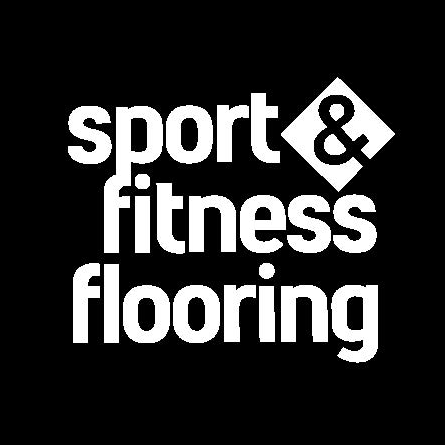 Official Partner
Official Partner
-
 Official Photography Agency
Official Photography Agency
-
 Official Partner
Official Partner
-
 Official Partner
Official Partner
-
 Official Partner
Official Partner
-
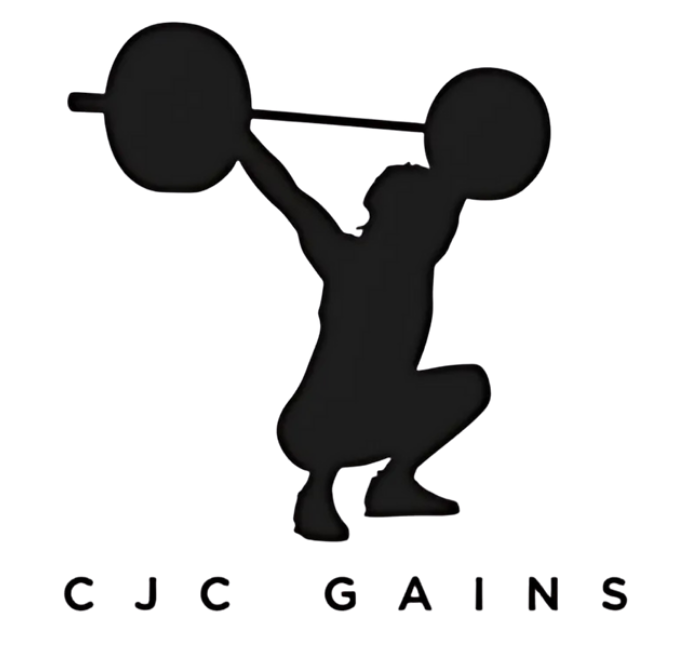 Official Partner
Official Partner
-
 Official Travel Partner
Official Travel Partner
-
 Partner
Partner
-
 Funding Partner
Funding Partner
-
 Funding Partner
Funding Partner
-
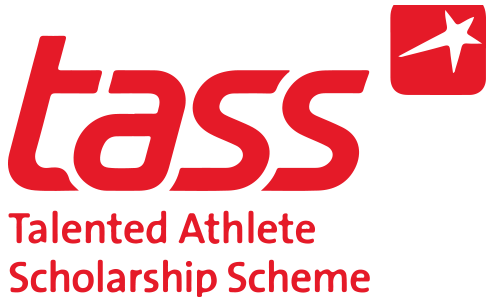 Funding Partner
Funding Partner
-
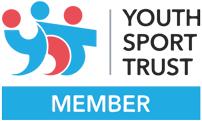 Official Strategic Partner
Official Strategic Partner
-
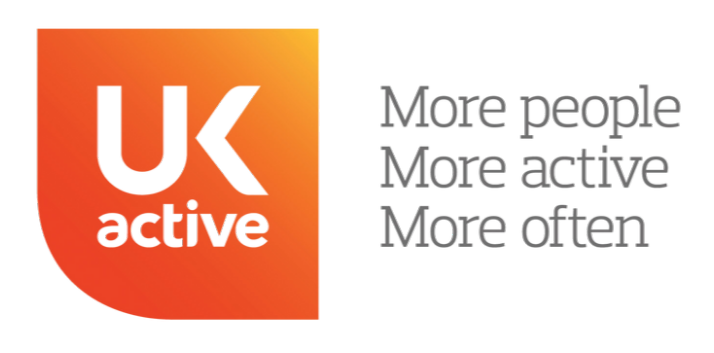 Official Strategic Partner
Official Strategic Partner
-
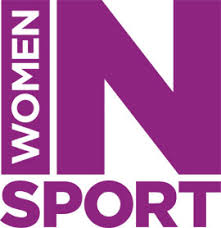 Official Strategic Partner
Official Strategic Partner
-
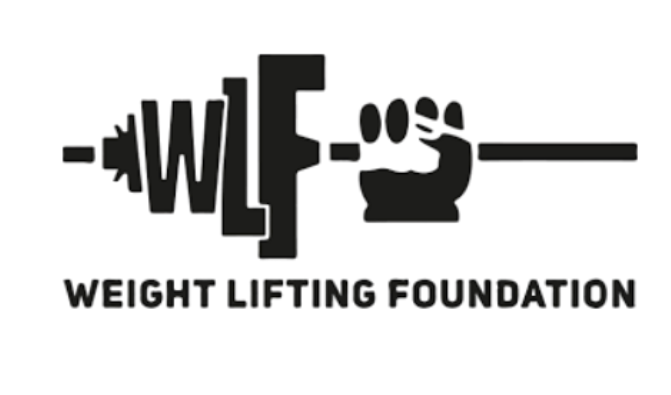 Weight Lifting Foundation Charity
Weight Lifting Foundation Charity
-
 Official ELearning Partner
Official ELearning Partner
-
 Official Awarding Organisation
Official Awarding Organisation
-
 Official Course Endorsement
Official Course Endorsement


